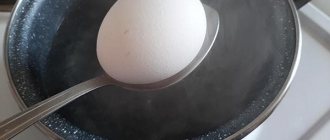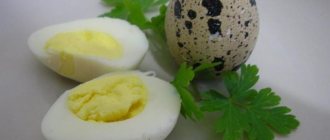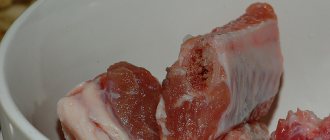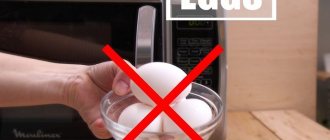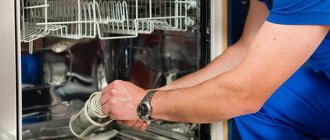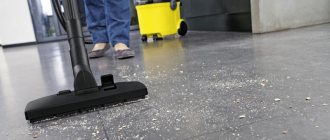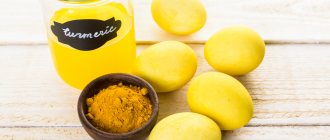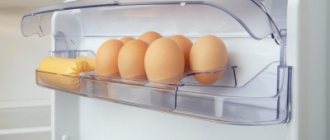In terms of its nutritional value, an ordinary boiled egg can be compared with expensive salmon breeds of red fish. They contain the same amount of important acids and unsaturated fats. Is this why this common product is so widely used in nutrition?
Boiled eggs are included in most common salads, and a day that starts with a simple but satisfying dish promises to be fruitful and active. However, it’s not enough to just boil an egg; you also need to peel it. And cleaning a cooked product is not so much difficult as it is boring and very time-consuming. And then a logical question arises: are there ways to reduce the shell removal procedure to a few seconds?
Proper cooking is the key to quick cleaning
Over the years, craftsmen and culinary experimenters have come up with many ways to peel a boiled egg quickly and effectively. However, before you learn how to peel an egg in 5 seconds, it is important to learn how to properly boil it and then cool it.
So, raw eggs must be poured with strictly cold water so that it covers them by about 1 cm. Over high heat, you need to bring the eggs to a boil and cook for another 7–9 minutes with moderate bubbling.
To make the shells easier to separate from the whites, you can add a generous handful of salt or soda. This is especially true if very fresh homemade eggs are boiled. It has been noticed that the fresher the product, the more difficult it is to clean it. Why this happens, even scientists find it difficult to answer.
How to peel a soft-boiled egg
To cook a soft-boiled product, you need to put it in boiling water and cook for no more than 90 seconds, then cover and turn off the heat. After 5 minutes, the eggs will be tender yolks encased in a firm white shell and will peel quickly when submerged in ice water.
The best way to get rid of shells without loss is to practice the skill of boiling the product “into a bag”, perfected to the smallest detail. Poached eggs do not need to be peeled by cooling in ice water or rolling on the table. In the case of simple boiled eggs, you will need to resort to one of the culinary-tested methods of removing the hard shell without spoiling the protein.
What methods of cleaning eggs do you know? Share a comment!
How and why you need to cool
After the eggs are completely cooked, you should immediately drain the hot water and fill them with as cold as possible. Ideally with the addition of ice. If the water gets hot, you need to change it several times until the boiled egg cools completely.
In the matter of peeling eggs, proper and, most importantly, rapid cooling plays a decisive role. But why do this if even eggs that have cooled on their own can be peeled quite well? Here there is already a question about the benefits of the finished product. Rapid cooling is required for several reasons:
- Even a very fresh homemade egg is much easier to peel if you cool it in ice water. The protein, which has hardened as much as possible due to temperature changes, separates from the shell without any problems.
- Cooling stops the cooking process and you can get the egg as done as intended. Whereas in a product that cools naturally, this process, although to a small extent, continues.
If you remember well, eggs that have cooled on their own are most often distinguished by the presence of a slight hydrogen sulfide odor and an unsightly gray-green layer covering the surface of the yolk. Rapid cooling prevents the yolk from changing color and creating an unpleasant aroma.
Typically, the egg cooling process lasts from 15 to 30 minutes. After this, you can proceed to cleaning them.
You can peel an egg very quickly using several methods. For example, if you carefully pierce a still raw egg with a thin needle, the cleaning process will only take a couple of seconds. The fact is that during cooking, the liquid will definitely penetrate under the shell and create space between the protein and the surface layer. Then it's a matter of technique. And now in more detail about how to peel an egg in 5 seconds.
Why boiled eggs can be difficult to peel
Each egg behaves differently when boiled, but there are general patterns. Knowledge of the physiology of this living product allows you to organize the process of preparing it correctly, and then clean it without hassle.
Table No. 1
How to boil eggs so that they peel well, success factors:
| What to pay attention to | How to put it into practice |
| Product age | Fresh embryos just from chicken are the worst to clean; it is better to let them sit in the refrigerator for at least 3-5 days. Their age must be taken into account if we are talking about a homemade product from one’s own backyard or one that is purchased directly from a farmer or owner of a personal subsidiary plot. Products from the supermarket do not need additional aging: while they are packaged and taken to the store, enough time passes for them to “age.” |
| Dive water temperature | To achieve the desired result, it is better to first leave the product removed from the refrigerator shelves at room temperature, meanwhile heating the water in a saucepan. This approach will prevent the embryo from bursting in boiling water, and the “hot start” will eliminate the possibility of the slowly coagulating protein sticking to the shell. |
| Cooking time | The whites set in the first minutes of heat treatment, the yolks take longer. To obtain a well-cooked product, it is worth extending the cooking period from the usual 8-10 minutes to 15. |
| Cooking water temperature | The higher the temperature, the stronger the amino acid bonds in the proteins become, therefore, in order not to end up with “rubber” eggs that squeak on the teeth as a result of cooking, the heating power is reduced half a minute after lowering the product into boiling water, leaving the fire at the medium mark. |
To prevent the shell from cracking when cooking in boiling water, it is also permissible to warm the product before immersing it under running hot tap water.
Option 4: with a glass
The simplest and most reliable method involves using any container with hard walls. This could be a glass, a half-liter glass jar, a small plastic container, or even a tin.
Fill the selected container with about one quarter of the water, lower the egg into it and cover with a lid or palm. And then shake vigorously several times. It is advisable to do all this over the sink, since during the process water from the container may splash. Now the shell will be removed quickly and without problems.
Method one – “blowing”
If you are absolutely running out of time, and there are a couple dozen ready-made but unrefined ingredients in the shell waiting in the kitchen, if you have no idea how to quickly peel an egg (even one!), learn this method and entrust the process to the kids: believe me, they will cope and will be very satisfied.
- After knocking the tops against something hard, make two holes in the egg - from the blunt and sharp ends.
- The diameter of the “holes” should not be too large, 1 cm will be enough.
- Having placed the egg with its sharp base to your lips, blow as hard as possible - the egg will jump out of the shell through the opposite hole. Hold it with your hand and catch it so it doesn’t fly far.
Option 5: for peeling multiple eggs
What if you need to peel several eggs? Do you really have to use a method every time? It’s not at all necessary, because in fact it’s much easier to peel several eggs at once than one at a time.
You just need to place 5-6 pieces in a fairly capacious plastic container, pour in a little cold water, and close the lid tightly. After this, pick it up and shake vigorously for 2–4 seconds.
During shaking, the eggs will hit the walls and each other, which will invariably lead to damage and even partial removal of the shell. All that remains is to open the container and take out almost completely peeled eggs.
If you don't have a container on hand, you can use a small saucepan or any other container that can be covered with a lid. The result will be just as pleasant and fast.
Optimal cooking time
The time it takes to cook eggs affects not only the taste of the product, but also the ease of peeling. It is optimal to boil the hard-boiled egg for 10 minutes. The protein in such a product will be elastic, but not rubbery, and the yolk will not be too raw or dry, but tender and soft in taste. Eggs cooked during this time are easy to peel. If cooked for a longer period of time, the shell along with the film sticks to the white and will be difficult to remove. To prepare a soft-boiled egg, boil it for 3 minutes, and in a bag for 5 minutes.
How to cook properly
It seems that boiling eggs is simple, but this process has its own subtleties. To ensure that the result is a perfect, beautiful egg that is not embarrassing to serve, paint for Easter or stuff, it is important to know what actions need to be taken. To ensure that boiled eggs are not only easy to peel, but also have a tender white and yolk and retain an ideal oval shape without holes or cracks, you need to do the following:
- Buy fresh product. You can check for freshness by immersing the eggs in water. Fresh ones will remain at the bottom, expired ones will float to the surface. Those eggs that show part of the shell on one side above the water must be used first, their shelf life is ending.
- Wash the eggs. Wash with a brush under cool running water or with soda. Dirt and many harmful bacteria collect on the shell, which can get inside the product when the shell cracks, which can lead to serious illness.
- Pour water into a saucepan and bring to a boil, then add the eggs. After boiling again, cook for 10-11 minutes.
- After cooking, the eggs must be cooled. First, pour ice water into a bowl. Spoon the hot eggs into a container of water and keep for 15 minutes.
If you take the eggs out of the refrigerator, you should wait half an hour to let them warm up a little before cooking.
Best cooking methods
There are many ways to cook hard-boiled eggs other than boiling them in boiling water. The following methods will help you obtain delicious boiled eggs that are easy to peel:
- Baking in the oven. The method is convenient for preparing large quantities at the same time. It will also help prevent the shells from cracking as the eggs sit on the baking sheet and don't hit each other. You need to take a wet towel, place the eggs on top and put them in a cold oven. Cooking temperature 160°C for 30 minutes.
- For a couple. With this method of cooking, the whites will be slightly harder than boiled ones, but will remain soft. You need to pour 1.5-2 cm of water into the pan, put a wire rack, when the water boils, add the eggs and cook for 11 minutes.
- In a slow cooker. The best way to cook eggs is to remove the shell easily. Standard cooking time is 10 minutes.
In practice, a lot depends on the model and power of the appliance, the cooking mode, and the amount of water poured into the bowl. To determine the ideal ratio of all parameters, sometimes you have to lime more than a dozen eggs.
Method for cleaning quail eggs
Quail eggs are distinguished by their miniature size. Therefore, the above methods are most often ineffective for cleaning them. You will still have to tinker a lot before you can completely clean them.
However, there is a relatively long but simple method for peeling quail eggs. To do this, put them in an enamel bowl and pour in a strong vinegar solution (1 part water and 2 parts table vinegar). The eggs will have to sit in this form for about 2-3 hours. However, in the end, the vinegar will corrode the thin shell and all that remains is to remove the thin film.
You might be interested in
- How to clean an enamel pan
- How to clean pots using office glue
- Cleaning enamel pots with folk remedies
Rules
In order to remove the shell from an egg without incident, you must first cook it correctly:
- For boiling, take eggs that are not the freshest - maybe the day before yesterday, maybe a week ago - in such specimens the whites no longer hold on to the shell so well and move away from it evenly and easily.
- You can add salt and vinegar to the water where eggs are boiled to prevent shell cracking and protein leakage.
- Boiled eggs need to be given a “contrast shower” - dipped in cold water immediately after being removed from boiling water.
Criterias of choice
If the product is purchased from private sellers at the bazaar, then the quality is high, the baked goods will be fluffy and aromatic, and the dishes will have a rich taste. This purchase is considered successful under one condition: when the sellers have a quality laboratory report in their hands.
In the store you need to pay attention to the labeling. The letter D indicates that the product is no more than 7 days old; it becomes table-ready a week after it arrives from the poultry farm. If storage conditions are met, they can remain on the shelf for up to 3 months.
It is better to focus on information about the sorting date. It will more accurately indicate the delivery time of the product to the store. Another sign of inclusion in a certain category is mass. The smallest ones belong to category 3. By the way, size has absolutely no effect on the taste and speed of removing the shell from the cooked product. The most important indicator of freshness is its dense structure. This egg fits pleasantly in the palm of your hand and does not make any extraneous sounds when shaken.
Taking into account the options for choosing wisely and methods for quickly peeling eggs, the holiday dish will be prepared on time with minimal effort.
How to hard boil eggs so that they peel well after boiling
Many housewives neglect such a simple action as washing eggs. But, knowing the process of the birth of an egg, it is not difficult to guess that on the surface of the eggshell there may be various microbes, one of which is salmonella - the main culprit of the disease salmonellosis. Therefore, eggs must be washed in warm water and soap before use.
During cooking, eggshells sometimes crack. This occurs due to the sharp temperature difference when an egg from the refrigerator immediately falls into boiling water. Therefore, eggs intended for boiling must be removed from the refrigerator in advance and left on the table so that they warm up to room temperature.
